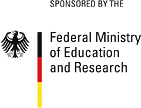Third Summer School 2012: “Asymmetries of Knowledge: Unequal Knowledges – Knowledge Inequalities”, Bogotá and Villa de Leyva (Colombia), October 29 – November 3, 2012
Cooperation: Research Network desiguALdades.net and
Universidad Nacional de Bogotá, Departamento de Geografía, Bogota, Colombia
Bogotá-Villa de Leyva (Colombia), October 29 - November 3, 2012
For more information please see summer school program in Spanish.
The Third Summer School on interdependent inequalities, organized jointly by desiguALdades.net and the Department of Geography of the National University of Colombia (Departamento de Geografía, Universidad Nacional de Colombia ), will take place in Bogotá and Villa de Leyva, Colombia, from October 29 to November 3, 2012.
The organizers will welcome up to 30 junior researchers from around the world for this intensive program, including participants from desiguALdades.net, participants from Universidad Nacional de Colombia, and external participants from Latin America.
The Organizers
desiguALdades.net is an interdisciplinary, international, and multi-institutional research network on social inequalities in Latin America, supported by the Bundesministerium für Bildung und Forschung (BMBF, German Federal Ministry of Education and Research) in the frame of its funding line on area studies. The Lateinamerika-Institut of the Freie Universität Berlin (LAI, Institute for Latin American Studies) and the Ibero-Amerikanisches Institut of the Stiftung Preußischer Kulturbesitz Ibero-American Institute IAI, Prussian Cultural Heritage Foundation, Berlin) are in overall charge of the research network. For the research concept of the network, please see www.desigualdades.net.
Universidad Nacional de Colombia is an autonomous university corporation at the national level, connected to the Ministry of Education of Colombia. The goal of the Department of Geography is to train geographers that are able to understand the interaction process between nature and society that takes place in geographic space, and who will be prepared to contribute to the reflection about these dynamics, with the final objective of producing knowledge and information for territorial planning, natural risk studies, and diverse environmental, economic and social problems. To learn more about our department please visit http://www.humanas.unal.edu.co/geografia/acerca-del-departamento/historia/.
Scope of the Summer School
Following up on the First Summer School on Interdependent Inequalities (São Paulo, Brazil, November 2010) which focused on transregional configurations of inequalities, and the Second Summer School (Buenos Aires, Argentina, October-November 2011) which focused on interdependent inequalities in a global perspective: class, racial, gender and ethnic asymmetries in Latin America, this Third Summer School is intended to continue to create space for researchers to explore the different axes through which inequalities are produced and reproduced in Latin America.
The objective of the Third Summer School is to promote a debate on progress on social inequalities related to knowledge asymmetries. To this end, the Third Summer School will foster discussion of both theoretical and empirical conditions and processes in Latin America, including how social inequalities related to knowledge are produced, reproduced and function, and how they are interconnected with the national and global levels.
This Summer School will have the following topics:
-
Introduction:This section seeks to highlight the discussions about knowledge, traditional knowledge and experiences, with an emphasis on the construction of knowledge since modernity and its implications in the current inequalities. At the same time we will explore and discuss the temporality, spatiality and materiality of knowledge.
-
Politics and Asymmetries of Knowledge. Here, we will discuss how politics (sub national, national, transnational) produce asymmetries between different forms and practices of knowledge as well as the process by which the exclusion of knowledge is generated and reproduced through these policies. We also discuss the existent asymmetries between politics of knowledge (eg. between the global North and the global South or between natural sciences and social sciences).
-
Production and Legitimation of Inequalities through Knowledge. We will emphasize about how differences of race, gender, ethnicity and class are produced and reproduced through knowledge.
-
Knowledge and Conflicts: We will analyze how social conflicts generate and transform knowledge and how this in turn transforms interactions and social processes. We will center the discussion around conflicts linked to “extractivism” (agribusiness and mining) and processes of armed violence.
Format of events
- Classes, workshops and lectures with international specialists.
- Discussions of research proposals prepared in advance by the participants.
- Interdisciplinary readings (a basic bibliography will be distributed in advance).
- Field visits to urban areas and social projects related to topics discussed in the Summer School.
The activities will be conducted at a postgraduate / Ph.D. level.
Language
Spanish and English. The organizers assume the candidates are fluent in at least one of the working languages (English or Spanish). They should also have at least good passive knowledge (listening and reading comprehension) in the other language.
Participants
The main target group of the Summer School is doctoral students from different social science disciplines with strong interest in inequalities in Latin American contexts. In addition, postdoctoral researchers who have (since 2009) concluded their doctoral studies within the last three years are welcome to apply. Finally, researchers may also apply if they have a Master degree and research experience relevant for the topic of the summer school.

